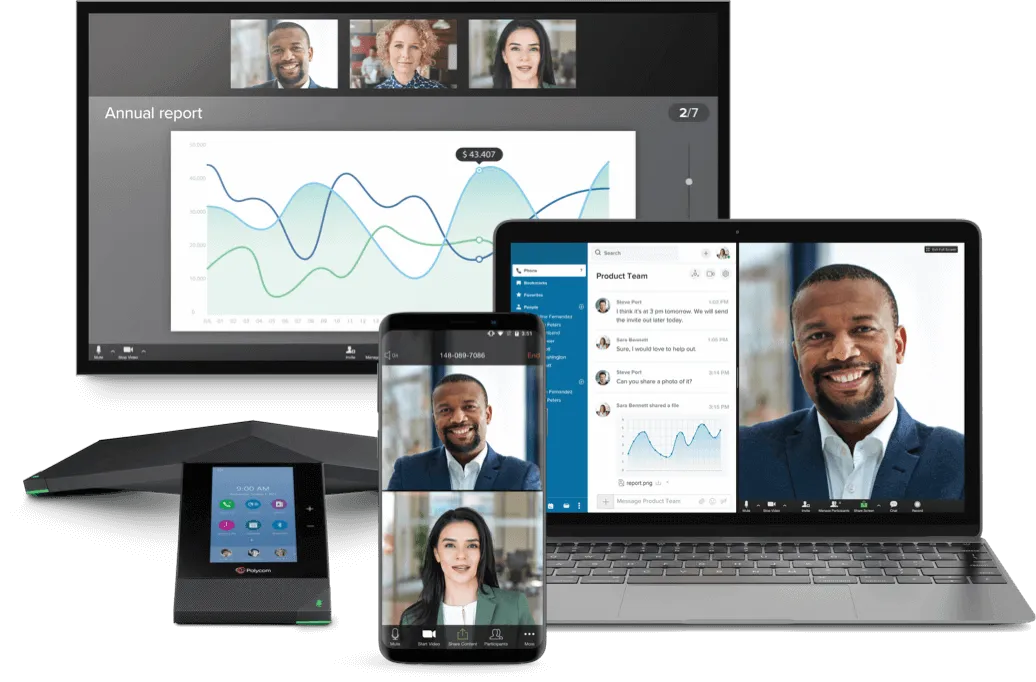How Much Does VoIP Service Cost?
Get to know the cost of owning a VoIP service along with their features and benefits.

Get to know the cost of owning a VoIP service along with their features and benefits.

If you know anyone who’s still using a landline or an on-premise phone system for their business, the first question that will (or should) probably come to your mind is "Why?"
After all, they’re paying more for a less effective product—there are better options, where they’re a small to mid-sized business,
There are secure, reliable, and cheap VoIP services out there—that are infinitely better than old-school phone systems
It’s not a question of which one is better (traditional vs VoIP) anymore. What they should be asking are two simple questions:
Do you know the answers? Let’s find out.
VoIP costing is divided into two stages:
There’s a kind of stigma that comes with the word “installation.” For a lot of people, this is when you’d have to spend a lot of money for hardware and equipment or software with licenses—in many office-related systems, you’d have to spend for both
The old days of on-premise phone systems
There’s a reason why you’ll usually see only big companies and corporations using on-premise VoIP phone systems. We’re talking about multiple bulky servers, PBX boxes— and a lot of wires.
Then there are the people needed to actually install it. You can’t do it by yourself, so you’ve got to hire experts to do it for you. Which means spending even more money.
You haven’t used the phone system yet, and you’ve already spent thousands of dollars.
Moving to the cloud
The good news? That doesn’t have to be a thing anymore. The best VoIP phone systems are cloud-based, meaning the service is hosted in a secure data center by the provider, and can be delivered to your company via the internet.
You don’t have to buy any hardware or equipment—the VoIP provider takes care of all that. All you need is a stable internet phone service.

The truth is that “installing” a hosted VoIP phone system is almost entirely free. Anything you might have to pay for isn’t really for installation. They’re for add-ons like phone numbers and VoIP phones.
To help you understand the potential costs, here are some of the things you need to consider when installing voice over IP technology.
Most providers give you a free local or toll-free number when you sign up for their VoIP phone system. If you want more business phone numbers, you’ll have to buy them (which you can usually do anytime from your VoIP account). These are normally charged per month, and will be included on your monthly bill.
If you have an existing phone number, you can also port or transfer it to your new VoIP phone system—free of charge. You can ask your provider about their number porting process.
Well, it’s free because (again) there’s no actual “installation” that needs to happen. The entire process goes like this:
Yep, you read that right. It’s that simple.
Once your account is activated, all the features included in your VoIP plan are activated too. Now you can start configuring the system based on how you want it to work.
What you’ll mainly spend money on will be towards making sure you have an internet connection stable enough to handle the number of VoIP users in your company.
Building a robust company local area network (LAN) can really help you manage VoIP traffic better in your physical office. (But you should invest in that regardless of whether you’re getting VoIP or not.)
You may also want to invest in QoS (quality of service) routers, which are routers you can set to prioritize VoIP calls over other internet traffic like downloads and streaming. This is optional, though.
You don’t need an expert to set up and configure your VoIP phone system (or at least, you shouldn’t). In fact, you don’t need any special IT skills. You can simply go to your online account’s dashboard to set it up. You can even grant administrator privileges to trusted employees so they can help you.
From your admin dashboard, you can do things like:
You can do even more from the dashboard, depending on your provider and account.
Top VoIP providers will go the extra mile—they’ll typically also help new customers set the system for no extra charge. So, if you need a walkthrough, contact your provider and they should be happy to help.

Nope! VoIP phone systems will work on your laptop or mobile device. You just need to download the softphone app and install it on your computer or smartphone.
But if you’re looking for something a little fancier, there are devices that are specially designed to enhance the VoIP experience. The cost of virtual phones can range from as low as US$60 to as high as US$1,000, depending on the features. The most popular brands are Polycom, Cisco, and Yealink.
There are different types that you can choose from like:
As you can see, you’re basically getting your VoIP phone system installed for free—all you need to pay for are additional phone numbers, VoIP devices, and a stable internet connection
Once your VoIP phone system is installed and configured, it’s time to use it. Because VoIP servies are usually subscription-based, you’ll be charged a regular fee until you decide to cancel.
Depending on your provider and the plan you choose, you can be billed monthly, quarterly, bi-annually, or annually.
(Most subscribers choose a per-month bill for budget flexibility.)
One thing you should know is that most VoIP providers charge on a per-user per-month basis instead of charging you for the collective minutes spent by your whole business.
On average, the monthly per-user charge is around $25. This normally includes unlimited outbound calling (U.S. and Canada), toll-free minutes, and basic features like auto-attendant, call forwarding, call screening, and caller ID.
Aside from the features above, RingCentral has plans that include unlimited business SMS, virtual fax, and video meetings. Higher tiered plans have even more toll-free minutes, a higher number of allowed video conference participants, and additional features like automatic call recording and single sign-on (SSO).
Most VoIP providers offer unlimited calling across the U.S. and Canada at no extra charge. For businesses that make a lot of outbound calls, this is pretty much a must-have. That’s especially important because traditional carriers automatically charge you long-distance fees when calling phone numbers with different area codes. Voice over IP nips that in the bud.
But what if you’re calling outside those countries?
Like regular carriers, VoIP providers have international rates. However, VoIP international call rates are typically lower.
Basically, with VoIP:
RingCentral has different international calling plans you can choose from. You can pay-as-you-go with international call credit bundles, or get an unlimited international call plan if you’re always calling outside the U.S. and Canada.
If you plan to build a national presence, a toll-free number is a must.
Toll-free numbers are phone numbers with distinct three-digit prefixes (800, 888, 877, 866, 855, and 844) that anyone in the U.S. and Canada can dial without being charged for the call. This allows your business to be accessible to almost anyone for free (on the part of the caller, at least).
This is, of course, where toll-free minutes come in. You usually have an allotted number of toll-free minutes per month included on your VoIP plan. Toll-free calls are automatically deducted from these. When you exceed the allotted minutes, you’ll be charged accordingly.
RingCentral has affordable high-volume toll-free minute bundles that you can purchase on top of the toll-free minutes included in your subscription plan. You can change your bundle anytime to meet your business needs.
With traditional on-premise systems, repair and maintenance requires expensive expert help. You can either hire a full-time team or you can hire contractors, but either way, you’ll be spending thousands of dollars per year. That doesn’t even include the hardware (parts and replacements) and software (new upgrades and updates) needed by the system.
With VoIP, the management and maintenance of the system falls on the provider, not you. This includes all updates and upgrades, which will automatically be rolled out to all customers at the same time. In other words: no extra fees.
When you encounter a problem, just call your VoIP provider to get help from their expert technical support rep for free.
Basically, you can use the service without worrying about having to deal with technical issues— you can always get help from your provider.
RingCentral has an award-winning customer support team that you can call 24/7. And it’s not just for technical issues; you can also ask about best-practice recommendations for your VoIP phone system.
When you subscribe to RingCentral, you get a secure and reliable cloud communications solution that includes enterprise-grade VoIP, cloud PBX, business texting, internet fax, online meetings, and over 50 other communications and collaboration features.
Try it out with a free trial and get a free local or toll-free number—no installation fees. Just subscribe, then use!

Message. Video. Phone. Together.
A seamless solution to unleash the power of cloud business communications.